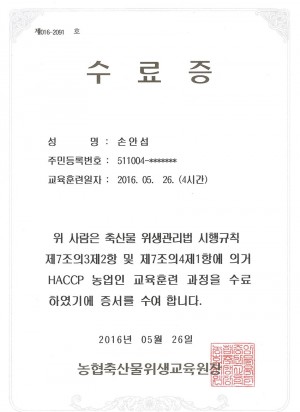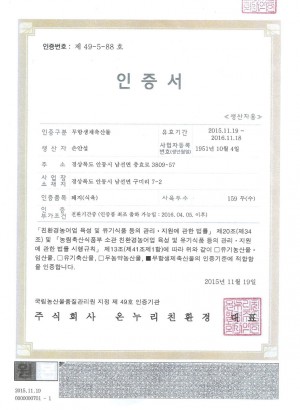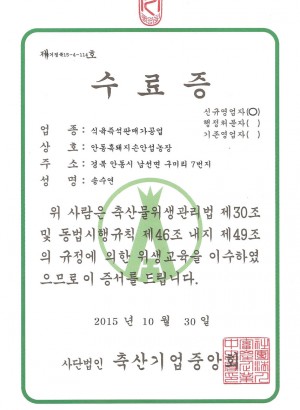[앞다리살]5 Clarifications On Adults ADHD Test
69
2023.03.03 07:36
짧은주소
본문
Adult ADHD Test - What Are the Symptoms of ADHD in Adults?
ADHD symptoms can have a devastating effect on an individual's life however it is possible to find relief from medication and other treatments.
If you're having trouble controlling your symptoms, a professional examination by medical or mental health professional is the best option to determine the correct diagnosis.
The specialist will interview you during the evaluation to determine the severity of your symptoms and any co-occurring conditions. They also ask questions regarding your past medical experiences, and may also interview an unrelated source like an individual partner, spouse or parent.
Self-Assessment Tools
The symptoms of ADHD can last into adulthoodand have a significant impact on your career, relationships, and personal safety. This disorder is often misunderstood, and is often not properly diagnosed. This makes it difficult to treat and patients may not achieve their full potential.
There are a few tools that will help you determine if you have symptoms of ADHD. These tools can be an excellent way to start your journey towards getting help. However, it is crucial to understand that they are not diagnostic and do not substitute for a professional assessment by a psychiatrist or psychologist.
One of the most effective self-assessment tools available for adults is the Adult Attention Deficit Hyperactivity Disorder Self-Report Scale (ASRS). Anyone who suspects they may have adhd testing for adults online can complete this tool. It covers the 18 DSM-IV criteria.
Another helpful self-assessment tool is the Conners Adult ADHD Rating Scales. This online tool comes with self-report scales as well as an observer scale. It is highly recommended that several people who know the patient complete the form to give an accurate assessment.
This test can also be used to evaluate executive function. This is a crucial skill that can be affected by ADHD and includes issues with impulse control, concentration, and planning.
This is a great resource for adhd Testing for adults online anyone who is looking to learn more about ADHD and the subtypes it can affect. It's also a great way to discover your own cognitive abilities.
This online tool lets you evaluate your risk for ADHD and identify the subtype. This ADHD test is intended for children 7plus and teens, but can also be used by adults.
These tests can be beneficial If you suspect that you may have ADHD but do not know what to do next. These tests can help you understand the nature of your symptoms and help you make changes to improve your health.
There are a myriad of types of self-assessment tools that can be found on the internet. These tools are fast and easy to determine whether you are suffering from ADHD. They can also be a good method to monitor your symptoms and determine how they change over time when you adhere to certain treatment guidelines or make positive lifestyle changes such as getting enough sleep.
T.O.V.A.
The Test of Variables of Attention (TOVA) is a computer-based test that tests an individual's ability to pay attention and control their impulses during both dull and more exciting tasks. It typically lasts for 21.6 minutes for patients 6 and above, and 10.8 minutes for children between 4 and 5.
Recent research found that TOVA was more accurate in identifying ADHD than the Verbal Test of Memory (test score) and the T-Score (test scores). This is due to the fact that TOVA contains a variety of error subscalesthat can be used to determine various kinds of attention deficits.
TOVA also includes the "validity" measure, which is designed to determine if a person is honest about their abilities and symptoms or exaggerating to get higher scores. This is crucial because symptom and performance exaggeration could result in inaccurate test results, which can be dangerous for patients who are receiving treatment for ADHD.
T-Scores on the TOVA and other tests revealed limitations in vigilance and sustained attention, and attention for a majority of ADHD patients. About one-third of those with ADHD scored in the impaired range on the TOVA and nearly half of them were impaired on at least one of the other tests (WAFV, TAP, and IVA-2).
These findings imply that the TOVA test may be able to serve "double duty" in ADHD evaluations, measuring attention/self-control as well as honesty/effort. These results should be analyzed with other data in order to make an assessment.
The TOVA has been around for quite a while, and in some cases , it's still being used as part of the diagnosis process. This can be a positive thing however it's important to keep in mind that TOVA testing carries some important caveats with it and that it should be thoroughly investigated before any conclusions can be made about the presence of ADHD in a patient.
In addition to ADHD tests, this method is also helpful for diagnosing anxiety, depression or sleep issues or learning issues, as well as other mental health concerns. These issues should be considered, since ADHD sufferers often face the same problems as adults. It is also a method to determine whether someone has an addiction problem to chemical substances or abuse of drugs.
ASRS-v1.1
The ASRS-v1.1 is an adult ADHD screening test which includes six questions. It tests ADHD symptoms like attention issues, impulsivity hyperactivity and impulsivity. It takes less than 5 minutes to complete.
Although it's a good screening instrument, it is unable to detect around 70% of the people who suffer from the disorder. The ASRS-5 is a better option for a more accurate diagnosis. It can accurately identify more than 90 percent of cases.
The ASRS-v1.1 was used in a study to test the effectiveness of the screening tool on patients seeking treatment for major depression (MDD). The study showed high test-retest reliability. This was true for both the six-question Screener T1 scores as well as the expanded ASRS symptoms checklist T2 scores.
MDD patients have endorsed each item with higher frequency than healthy controls across the 18 ASRS v1.1 items. They also endorsed more items that were linked with their anxiety levels.
Participants were contacted by researchers between 21 and 0 days after receiving their ASRS T1. To confirm a DSM-IV diagnosis the participants were given a 34-item extended ASRS Symptom Checklist (v1.1) and the Mini International Neuropsychiatric Interview 7.0 (MINI) and an Adult ADHD Clinical Diagnostic Scale V1.2.
The results indicate that the ASRS-v1.1 Screener can identify MDD patients with full-syndrome ADHD more frequently than MDD patients who do not have the disorder. The ASRS-v1.1 Screener has high specificity and sensitivity for identifying adults suffering from full-syndrome ADHD, as well as good positive and negative predictive values.
This is great news for patients looking for an easy and affordable way to determine whether they suffer from the disorder. This will help them avoid unnecessary medication and receive the appropriate help they need.
These results are important to be aware of since ADHD is a prevalent co-morbidity among patients with depression, and it can greatly affect their quality of life. These results are encouraging and suggest the ASRS v1.1 can be utilized as a screening tool for people with depression who may be at risk of developing ADHD.
The ASRS-v1.1 is a very brief and easy to administer screening tool that can be completed online. It can be transformed into an interactive format to make it even simpler to complete.
BADDS
There are a variety of rating scales that can be used to determine ADHD in adults. These can be employed by a teacher physician, or patient. The results can give information about the severity of the disorder and the symptoms.
These tools can be useful in helping you to identify and monitor your symptoms as take care of your treatment. These tools can help you track your progress in your efforts to improve your symptoms and change your lifestyle.
* Symptom Checklist for Attention-Deficit/Hyperactivity Disorder (ASRS v1.1): The ASRS is an 18-question questionnaire that was developed from the DSM-IV criteria for ADHD. Six of the questions were found to be most predictive of a diagnosis of ADHD. Part A of the ASRS is screener-based version that focuses on these six symptoms and Part B is more thorough and covers the other 12 symptoms associated with ADHD.
The adult test for adhd Problems Questionnaire (APQ) is another self-reporting questionnaire. It is comprised of 43 items and rates in accordance with DSM-IV criteria. This questionnaire is a fantastic way to determine whether an adult suffers from ADHD. It can identify symptoms that might not be evident on an assessment tool.
To assess attention and impulsivity For assessing attention and impulsivity, a variety tests are available. These tests are sometimes referred as "continuous tests for performance" because they require patients to complete a set of. These tests are popular because they are quick and easy to do and can be done at home.
Regardless of the test you choose it is important to keep in mind that these scores are based on your own perceptions. Therefore, if you have questions about your results you should speak with a professional who can evaluate you more in depth.
For instance, a therapist who specializes in ADHD will provide you with more specialized insight into your symptoms than an average self-assessment tool. A therapist can also assist you to design a strategy to manage your symptoms, and increase your quality of life.
For example therapy may suggest you begin taking medications to manage your symptoms. Your therapist will explain how medications affect your brain and how they can affect your mood. They can also help you find the right medication.
ADHD symptoms can have a devastating effect on an individual's life however it is possible to find relief from medication and other treatments.
If you're having trouble controlling your symptoms, a professional examination by medical or mental health professional is the best option to determine the correct diagnosis.
The specialist will interview you during the evaluation to determine the severity of your symptoms and any co-occurring conditions. They also ask questions regarding your past medical experiences, and may also interview an unrelated source like an individual partner, spouse or parent.
Self-Assessment Tools
The symptoms of ADHD can last into adulthoodand have a significant impact on your career, relationships, and personal safety. This disorder is often misunderstood, and is often not properly diagnosed. This makes it difficult to treat and patients may not achieve their full potential.
There are a few tools that will help you determine if you have symptoms of ADHD. These tools can be an excellent way to start your journey towards getting help. However, it is crucial to understand that they are not diagnostic and do not substitute for a professional assessment by a psychiatrist or psychologist.
One of the most effective self-assessment tools available for adults is the Adult Attention Deficit Hyperactivity Disorder Self-Report Scale (ASRS). Anyone who suspects they may have adhd testing for adults online can complete this tool. It covers the 18 DSM-IV criteria.
Another helpful self-assessment tool is the Conners Adult ADHD Rating Scales. This online tool comes with self-report scales as well as an observer scale. It is highly recommended that several people who know the patient complete the form to give an accurate assessment.
This test can also be used to evaluate executive function. This is a crucial skill that can be affected by ADHD and includes issues with impulse control, concentration, and planning.
This is a great resource for adhd Testing for adults online anyone who is looking to learn more about ADHD and the subtypes it can affect. It's also a great way to discover your own cognitive abilities.
This online tool lets you evaluate your risk for ADHD and identify the subtype. This ADHD test is intended for children 7plus and teens, but can also be used by adults.
These tests can be beneficial If you suspect that you may have ADHD but do not know what to do next. These tests can help you understand the nature of your symptoms and help you make changes to improve your health.
There are a myriad of types of self-assessment tools that can be found on the internet. These tools are fast and easy to determine whether you are suffering from ADHD. They can also be a good method to monitor your symptoms and determine how they change over time when you adhere to certain treatment guidelines or make positive lifestyle changes such as getting enough sleep.
T.O.V.A.
The Test of Variables of Attention (TOVA) is a computer-based test that tests an individual's ability to pay attention and control their impulses during both dull and more exciting tasks. It typically lasts for 21.6 minutes for patients 6 and above, and 10.8 minutes for children between 4 and 5.
Recent research found that TOVA was more accurate in identifying ADHD than the Verbal Test of Memory (test score) and the T-Score (test scores). This is due to the fact that TOVA contains a variety of error subscalesthat can be used to determine various kinds of attention deficits.
TOVA also includes the "validity" measure, which is designed to determine if a person is honest about their abilities and symptoms or exaggerating to get higher scores. This is crucial because symptom and performance exaggeration could result in inaccurate test results, which can be dangerous for patients who are receiving treatment for ADHD.
T-Scores on the TOVA and other tests revealed limitations in vigilance and sustained attention, and attention for a majority of ADHD patients. About one-third of those with ADHD scored in the impaired range on the TOVA and nearly half of them were impaired on at least one of the other tests (WAFV, TAP, and IVA-2).
These findings imply that the TOVA test may be able to serve "double duty" in ADHD evaluations, measuring attention/self-control as well as honesty/effort. These results should be analyzed with other data in order to make an assessment.
The TOVA has been around for quite a while, and in some cases , it's still being used as part of the diagnosis process. This can be a positive thing however it's important to keep in mind that TOVA testing carries some important caveats with it and that it should be thoroughly investigated before any conclusions can be made about the presence of ADHD in a patient.
In addition to ADHD tests, this method is also helpful for diagnosing anxiety, depression or sleep issues or learning issues, as well as other mental health concerns. These issues should be considered, since ADHD sufferers often face the same problems as adults. It is also a method to determine whether someone has an addiction problem to chemical substances or abuse of drugs.
ASRS-v1.1
The ASRS-v1.1 is an adult ADHD screening test which includes six questions. It tests ADHD symptoms like attention issues, impulsivity hyperactivity and impulsivity. It takes less than 5 minutes to complete.
Although it's a good screening instrument, it is unable to detect around 70% of the people who suffer from the disorder. The ASRS-5 is a better option for a more accurate diagnosis. It can accurately identify more than 90 percent of cases.
The ASRS-v1.1 was used in a study to test the effectiveness of the screening tool on patients seeking treatment for major depression (MDD). The study showed high test-retest reliability. This was true for both the six-question Screener T1 scores as well as the expanded ASRS symptoms checklist T2 scores.
MDD patients have endorsed each item with higher frequency than healthy controls across the 18 ASRS v1.1 items. They also endorsed more items that were linked with their anxiety levels.
Participants were contacted by researchers between 21 and 0 days after receiving their ASRS T1. To confirm a DSM-IV diagnosis the participants were given a 34-item extended ASRS Symptom Checklist (v1.1) and the Mini International Neuropsychiatric Interview 7.0 (MINI) and an Adult ADHD Clinical Diagnostic Scale V1.2.
The results indicate that the ASRS-v1.1 Screener can identify MDD patients with full-syndrome ADHD more frequently than MDD patients who do not have the disorder. The ASRS-v1.1 Screener has high specificity and sensitivity for identifying adults suffering from full-syndrome ADHD, as well as good positive and negative predictive values.
This is great news for patients looking for an easy and affordable way to determine whether they suffer from the disorder. This will help them avoid unnecessary medication and receive the appropriate help they need.
These results are important to be aware of since ADHD is a prevalent co-morbidity among patients with depression, and it can greatly affect their quality of life. These results are encouraging and suggest the ASRS v1.1 can be utilized as a screening tool for people with depression who may be at risk of developing ADHD.
The ASRS-v1.1 is a very brief and easy to administer screening tool that can be completed online. It can be transformed into an interactive format to make it even simpler to complete.
BADDS
There are a variety of rating scales that can be used to determine ADHD in adults. These can be employed by a teacher physician, or patient. The results can give information about the severity of the disorder and the symptoms.
These tools can be useful in helping you to identify and monitor your symptoms as take care of your treatment. These tools can help you track your progress in your efforts to improve your symptoms and change your lifestyle.
* Symptom Checklist for Attention-Deficit/Hyperactivity Disorder (ASRS v1.1): The ASRS is an 18-question questionnaire that was developed from the DSM-IV criteria for ADHD. Six of the questions were found to be most predictive of a diagnosis of ADHD. Part A of the ASRS is screener-based version that focuses on these six symptoms and Part B is more thorough and covers the other 12 symptoms associated with ADHD.
The adult test for adhd Problems Questionnaire (APQ) is another self-reporting questionnaire. It is comprised of 43 items and rates in accordance with DSM-IV criteria. This questionnaire is a fantastic way to determine whether an adult suffers from ADHD. It can identify symptoms that might not be evident on an assessment tool.
To assess attention and impulsivity For assessing attention and impulsivity, a variety tests are available. These tests are sometimes referred as "continuous tests for performance" because they require patients to complete a set of. These tests are popular because they are quick and easy to do and can be done at home.
Regardless of the test you choose it is important to keep in mind that these scores are based on your own perceptions. Therefore, if you have questions about your results you should speak with a professional who can evaluate you more in depth.
For instance, a therapist who specializes in ADHD will provide you with more specialized insight into your symptoms than an average self-assessment tool. A therapist can also assist you to design a strategy to manage your symptoms, and increase your quality of life.
For example therapy may suggest you begin taking medications to manage your symptoms. Your therapist will explain how medications affect your brain and how they can affect your mood. They can also help you find the right medication.















댓글목록
등록된 댓글이 없습니다.